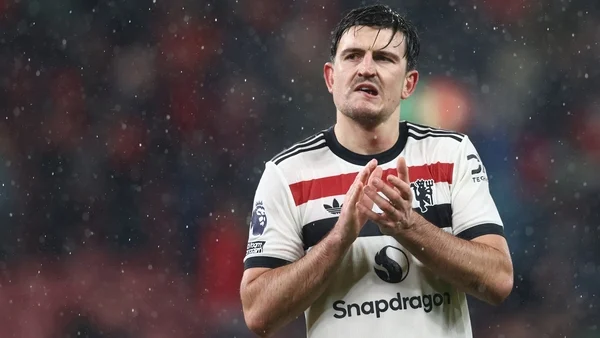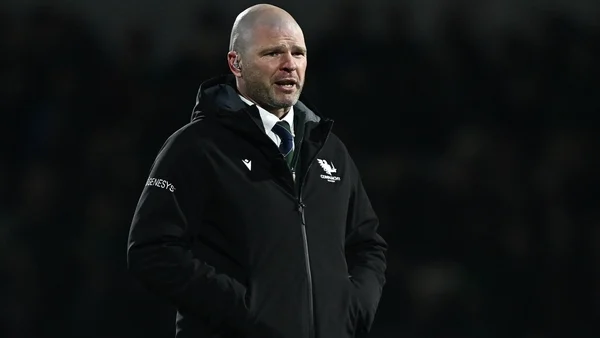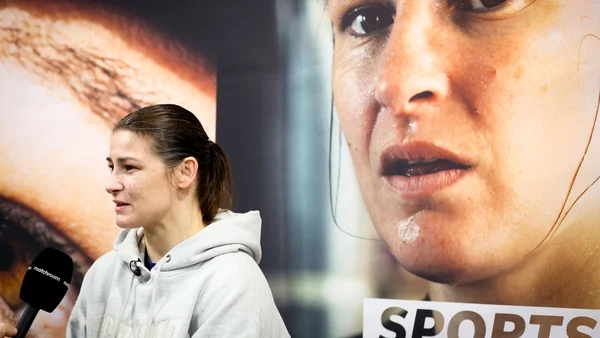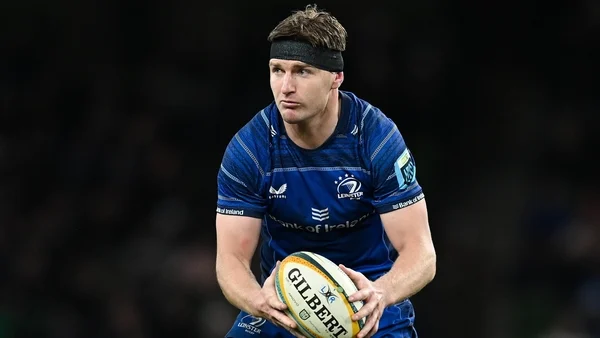After their encouraging showing in Anfield, Manchester United head to the Arsenal for their FA Cup third round game with some unexpected pep in their step.
Some of the alarmism concerning the 'r' word has at least dissipated.
The relegation talk reached a high-water mark at the end of December, following the 2-0 home loss to Newcastle, when poor Joshua Zirkzee was put in the Old Trafford stocks.
That was their fifth league defeat in that month alone, the stattos informing us this was the first time this had happened since September 1962, back when a youthful Johnny Giles was still part of Matt Busby's post-Munich rebuild.
The manager himself had been surprisingly forthright in admitting the possibility of relegation, probably in a self-interested attempt to reframe success as simply staying up.
Worst case scenario, we had visions of Jaden Sancho, in an echo of history, sending them down with a back-heeled finish. Though perhaps, given his fortunes at Old Trafford, he might forgo the non-celebration celebration.
Denis Law gave us one of the original non-celebration celebrations after scoring that infamous goal in 1974, although he was much more sincere about it than its modern exponents - most of whom are just following long-established custom and can't quite contain their smugness at having scored a goal. Law, on the other hand, appeared genuinely distressed at relegating his old club, and wheeled around like Cillian Murphy after he executed the young informer early on in 'The Wind that Shakes the Barley'.
The apocalyptic scenario would certainly have caused problems for this desk.
At the moment, our Championship content consists of a wire service provided round-up of the weekend action, reworked to foreground the contribution of the Irish lads, insofar as their efforts allow us.
Typically, these will run under a headline in the vein of 'Championship round-up: Browne on target' or 'Championship round-up: Obafemi bags winner' or, if pickings are especially slim, 'Championship round-up: Manning notches assist'.
Manchester United spending their first stint in the second tier since the Connell's graduation year ('74-75') might have forced us to recalibrate our strategy. Perhaps even resulted in our first ever SkyBet Championship push notification from the app.
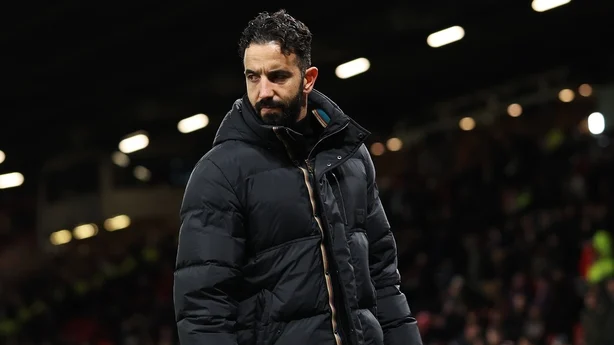
There is still a large constituency out there who would demand as much. Among Irish Premier League fans - which is to say most football fans - Manchester United and Liverpool were traditionally akin to Fianna Fáil and Fine Gael in the old days.
Sure, there were Labour style third parties, which caught the wave from time to time. Arsenal during the Wenger Tide. Leeds United among a certain age cohort. Chelsea, among those unaware or indifferent to the type of politics historically favoured in 'The Shed'.
Of the United/Liverpool duopoly, it is supporters of the latter who have been the more vocal and visible in the past decade, for obvious reasons.
Liverpool fans were hardly ever a minority in the country but since Klopp, they have become more or less unignorable, swamping everyone's social media feeds with their triumphalistic braying and occasionally irate Tiktoks.
By contrast, it was several years ago when the Irish Examiner's Larry Ryan drew our attention to the phenomenon of the 'lapsed Man United fan', understandably attributing the rapid growth of this constituency to the "notoriously tricky transition from winning all the time to not winning."
Fearful that this ennui would prove contagious, he floated the idea of making MUTV free-to-air, though this proposal has yet to be discussed before any Oireachtas committee.
This country used to be Manchester United country. A few snapshots from that era stick in the mind.
We had the famous megastore in the Lafayette building in Dublin's Westmoreland Street, which the club were still paying rent on in 2015, 13 years after it closed.
Questions and Answers once spent the guts of 20 minutes discussing the Rock of Gibraltar saga - involving as it did a couple of prominent Irish businessmen - with the kind of urgency usually reserved for an outbreak of war or a sudden collapse in house prices. Liz O'Donnell was especially bemused by the length of time devoted to it and was alone on the panel for admitting she had little to offer on the topic.
The Taoiseach of the day was one of the country's most prominent Reds, who spent the mid-90s criss-crossing over and back from Old Trafford "as often as I could, quite frankly."
On the Marian Finucane Show - now the Brendan O'Connor show - ahead of the 2008 Champions League, one panellist lamented that the game was far away in Moscow, "otherwise everyone would go", prompting another panellist to intervene with the then leftfield counterpoint that not everyone in the country was a Manchester United fan.
This was an era before the LOI fraternity had their social media platforms from which to heap cultural scorn on the 'normies' who might make such comments on the national broadcaster.
My own favourite Irish Man United fan moment was at a pre-season friendly in a packed Tolka Park in the mid-90s, when a girl simply strode up and gave Giggsy a peck on the cheek while he had paused before taking a corner and then skipped back to her giggling mates, entirely unharassed by any security presence.
Other incidents were perhaps less charming.
At full-time after the shock 2010 FA Cup third round defeat to Leeds, I saw a chap from the north of Ireland tear up the steps of the North Stand in an apparent attempt to attack a party of celebrating visiting fans in a small corporate booth, all the while shouting the words "f*****g sheep-shaggers" at such volume, it's a small wonder it wasn't picked up by the ITV mics.
The slightly well-to-do Leeds group manfully tried to maintain their mask of amused bravado - as you do - but couldn't quite manage to conceal their alarm. The whole section stood transfixed for a while as this scene played out and, eventually, security reinforcements arrived and our friend from the North was hustled away, like Mayo Mick or Iain Paisley that time he shouted at the Pope.
Given his reaction to that rare reversal, one would have to fear for the chap's state of mind over the past decade. Or maybe he became inured to failure after a while. Perhaps he even joined the ranks of the 'lapsed' and the 'former' believers.
Having reigned for two decades, Alex Ferguson departed in 2013 and the club has never really recovered.
Ferguson had spent such an inordinately long time at Old Trafford that he effectively became part of the club's identity and they didn't know either who they were and how they should proceed in his absence.
It's also debatable whether his late-stage teams (2011 - 2013) would have been championship winning quality under any other manager. By the early 2010s, Ferguson's psychological hold over his own team, the opposition, as well as the entire English refereeing community was such that he must have been worth 20 points a season, minimum, at that time.
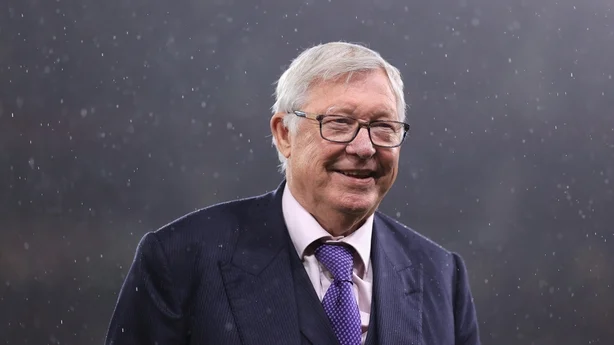
Their fall has been at least as lurid and probably more undignified than Liverpool's in the 1990s.
David Moyes, as we know, only got the job on the technicality of a legend who recommended him.
After that debacle, the United board swore off humility, appointing first Louis Van Gaal and then Jose Mourinho.
Ole Gunnar Solskjaer was appointed on a wave of giddy nostalgia after a blindingly successful interim spell, at least some of which must have been attributable to relief that Mourinho was no longer around.
There was further dabbling in nostalgia when Cristiano Ronaldo returned in the summer of 2021, sparking a culture war style dispute among the fanbase. Arriving into a team which finished runners-up the previous season, Ronaldo proceeded to score a torrent of goals and Man United duly slumped to sixth.
The intellectuals reckoned that Ronaldo's by then monomaniacal focus on his own goals tally was detrimental to the overall shape of the team; the anti-hipsters smelled the whiff of pretension off that argument and demanded to know how he could be the problem when he did only put the goal in the bloody goal the whole time.
Through all this, Fergie's main role - in addition to his part-time lecturing gig at Harvard - was as a face for the Sky cameraman to zoom in on whenever United conceded at home.
Ralf Rangnick was less a manager than a kind of visiting consultant brought in to assess just how bad things were, on which score he didn't disappoint. Although saying that open heart surgery is required is one thing, actually performing it is another.
They went Dutch again with Erik ten Hag but his overly long goodbye was particularly miserable and Man United were plumbing new depths by the end of his reign. No sign of the weather breaking.
The suavely impressive Ruben Amorim barely enjoyed a honeymoon worthy of the name. December 2024, when they seemed capable of losing to anybody, represented the nadir.
Which brings us to Anfield, with Man United's morale never as low and their great historical foes all set to steamroll them. Gary Neville was making jokey, viral videos attempting to cover the pitch in snow and the prospect of another 7-0 was being floated.
And then came the heartening, impressive and tactically clever display last Sunday. A moment almost akin to the City Ground 1990. Man United aren't traditionally in the business of moral victories - and Amorim wasn't claiming one - but this was close as they came. The only shame for the visiting fans was that Harry Maguire blew his chance for a Mark Robins moment at the death.
And so it's back to the FA Cup third round, a game which reputedly saved Fergie all those years ago. These days, winning an FA Cup is not necessarily enough to rescue a doomed manager, as Louis Van Gaal discovered, though it earned Erik ten Hag a reprieve last season.
But for Amorim, it's a chance to build on the promise hinted at in the defiant display in Liverpool as they embark on the long road back to respectability.
